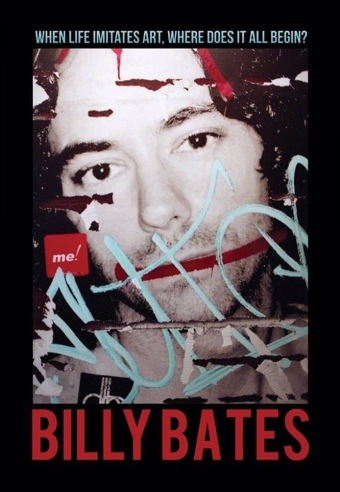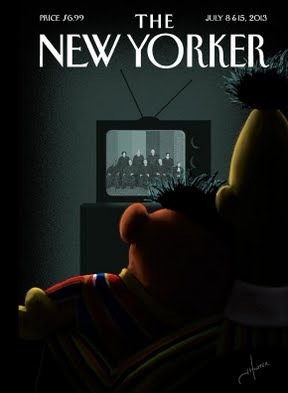In Sunday’s Sun: when scandal is the rule and not the exception
If we have a national memory of seven minutes, do scandals matter any more, or at all?
If we have seen and heard everything before, does a new scandal register on our collective consciousness?
Not really.
It’s been quite a time, has the spring of 2013. At every level, in virtually every part of the country, sleaze and seaminess is, seemingly, the order of the day.
Federally, of course, there is the ongoing Senate expense scandal, which has spawned multiple RCMP probes of Conservative and Liberal senators. The mess has claimed the political career of the prime minister’s highly regarded chief of staff, and left the governing party plummeting in the polls.
Provincially, police are investigating the management of Ontario’s air ambulance service and the destruction of records relating to a couple of gas plants.
In Quebec, an inquiry into political corruption has been underway since late 2011 — and it has claimed an impressive number of politicians, including the last two Montreal mayors.
Municipally, Toronto’s mayor is alleged to have smoked crack cocaine in a video, and he has not sued the media outlets that have made that allegation.
In London, Ont., the mayor has been charged with fraud, and was found to have pocketed thousands from a defunct charity he chaired.
Politicians in Toronto, Mississauga, Winnipeg and elsewhere faced conflict of interest allegations.
At this point, the requisite disclaimers: Everyone’s innocent until proven guilty. No one has been convicted of a crime.
That all said, doesn’t it seem to you that the spring of 2013 has been qualitatively worse than previous years? That we are incontestably awash in political sewage? That, despite a myriad number of laws and regulations and well-funded overseers, things are getting worse, not better?
Perhaps. Maybe. But one thing is undeniably the case: Most of the time, most people don’t give a sweet damn.
There have been only two occasions when they did, and when scandal had a significant impact on the body politic: Forty years ago, when the Watergate scandal forced the resignation of a president. And a decade ago, in Canada, when the sponsorship affair commenced the process that led to the Liberal Party of Canada’s present ignominious third-party status.
Too often, however, it is forgotten that Watergate — the cancer on Richard Nixon’s administration — had been front-page news in both the Washington Post and The New York Times throughout the 1972 presidential race. Despite that, Nixon went on to win more than 60% of the popular vote. If the early days of Watergate mattered to American voters, they certainly didn’t show it.
So, too, sponsorship. After Jean Chretien learned of the mess and called in the RCMP, the Liberal Party reigned in the polls. At the time of his departure in December 2003, in fact, the governing Grits were registering around 60% support in national surveys. Despite the ongoing Mountie investigation, which was in all the papers at the time.
Watergate came to matter only because of the cover-up that followed — and because it was truly the first full-blown scandal that directly involved a sitting president, at a time when the media was still a power unto itself.
Sponsorship had a corrosive effect principally in Quebec, because voters there came to believe they had been swindled into voting for federalism during the 1995 referendum.
Apart from those two examples — apart from Watergate and sponsorship — scandals loom large in the minds of the media and politicians. But not so much the public.
Partly, it is because other things come up; they move on. Partly, it is because there is a grinding sameness to it all, year after year.
Mostly, however, it is because the public has long believed that public life does not attract the brightest or the best.
To them, it attracts only the dregs.
SFH at the movies
Hollywood, here we come!
SFH’s tuneful genius is to be found in Julie Pacino’s (yes, daughter of) latest flick, Billy Bates. It’s being released in the Fall in LA and NYC. The Kardashians have asked us to take them down the red carpet at the star-studded premiere, but we said no.
Is it arty and deep? Yes it is. But so is Shit From Hell.
Perfect
Dear Prime Minister Harper
I’ve actually never written you a letter before.
I’m doing so now to ask you to intervene in this case: hundreds in thousands in Canadian dollars going to one of the most violent neo-Nazi groups – the one, in fact, who provided the blueprint for the Oklahoma City bombing. The worst case of domestic terror in the history of the United States.
I am confident you and your office will do all that you can to stop this from happening.
Sincerely,
Warren
Newest Daisy Group staffer demonstrates typing skills
Yahoo News: Harper Reformatories make themselves the (bad) story
W@AL: I was wrong. About everything.
Outside Sun News studios, following an appearance on Brian Lilley’s show, I am struck by a proverbial lightning bolt on the way to Damascus. Clearly, I was wrong about Dalton McGuinty, and pretty much everything else. Watch what happens next.
Rob Ford is a liar
…and employs liars. Surprise, surprise.
What do those boys get up to after dark, I wonder. Is someone ever going to write about that, I wonder.
In Tuesday’s Sun: disasters, political and natural
In Alberta, no elections are happening next week. People are focused on more important things — like the tragic loss of life attributed to the great flood of 2013, or the extraordinary damage that was caused by it. At times like this, no one wants to hear about politics.
But politics intrudes, just the same. Chances are weighed, assessments get made. Of such terrible events are political careers made and lost.
Prime Minister Stephen Harper, who has represented a Calgary riding as both a Reform Party and Conservative Party MP, is not expected to campaign again until May 2015. Premier Alison Redford, elected with a comfortable majority in April 2012, need not seek the judgment of the people until spring 2016, or later. Only Calgary Mayor Naheed Nenshi is facing voters soon — in October of this year, possibly against arch-conservative talk radio host Dave Rutherford.
On Friday, Harper, Redford and Nenshi met the media not far from the surging Bow River. Harper and Nenshi sported identical shirts, although the Conservative leader also (oddly) wore a military flight jacket. Redford stood between Harper and a gaggle of his caucus colleagues, some of whom — like leadership aspirant Jason Kenney — had actively and energetically conspired to defeat Redford in the last provincial election. If Redford was uncomfortable showing her back to Kenney, she didn’t show it.
Instead, the three looked as politicians so often do when natural disasters strike: uncomfortable and uncertain. Worried about the people they are privileged to represent, to be sure. But also worried, just a little bit, about their own futures, too.
The Calgary Herald, however, was pleased. “Harper, Redford and Nenshi show true leadership in the flood crisis,” its Monday editorial enthused, adding – in a bit of overwrought sentimentality – that their collective leadership “is consoling and also contagious, for the sight of their strength inspires optimism and confidence.”
Really? That may come as news to someone in my former hometown, surveying raw sewage in their basement and contemplating an insurance policy (like many) that will not cover the clean-up. Nor is it likely to “inspire or console” a voter who is wondering, as he or she surveys a darkened and dirty downtown, why governments shelved a comprehensive 2006 report on how to avoid precisely what has happened in the 2013 flood — written after the last big flood, in 2005.
The Herald’s purple prose notwithstanding, the jury is still out. If relief and rebuilding efforts drag on too long — if governments do not do what Albertans expect of them — then there will be hell to pay. Political heads will roll.
Last year’s U.S. presidential election showed what can happen when politicians come together to deliver real and measurable results, post-disaster. The destruction wrought by Hurricane Sandy in October 2012 likely re-elected President Barack Obama — and helped propel New Jersey Gov. Chris Christie into frontrunner status in the race to be the 2016 Republican presidential nominee.
Obama’s opponent Mitt Romney — who had earlier called for the elimination of the Federal Emergency Management Agency — paid a steep price. Conservatives and libertarians, take note: After something like Sandy hits, voters expect government to step up.
In the difficult days and weeks ahead, it remains to be seen who will step up to make Alberta whole again. Convivial press conferences on the banks of the Bow won’t cut it. For starters, Harper, Redford and Nenshi may want to dust off that shelved 2006 flood-mitigation plan.
If nothing else, their political futures may depend on it.



